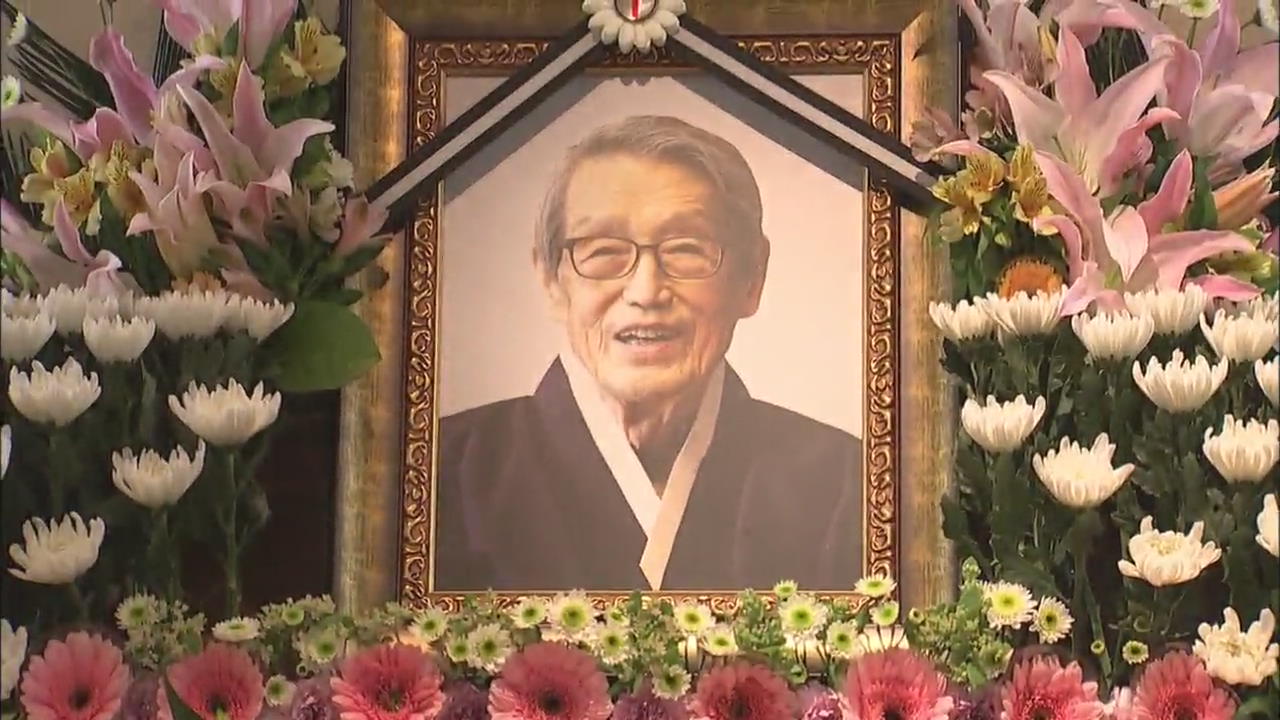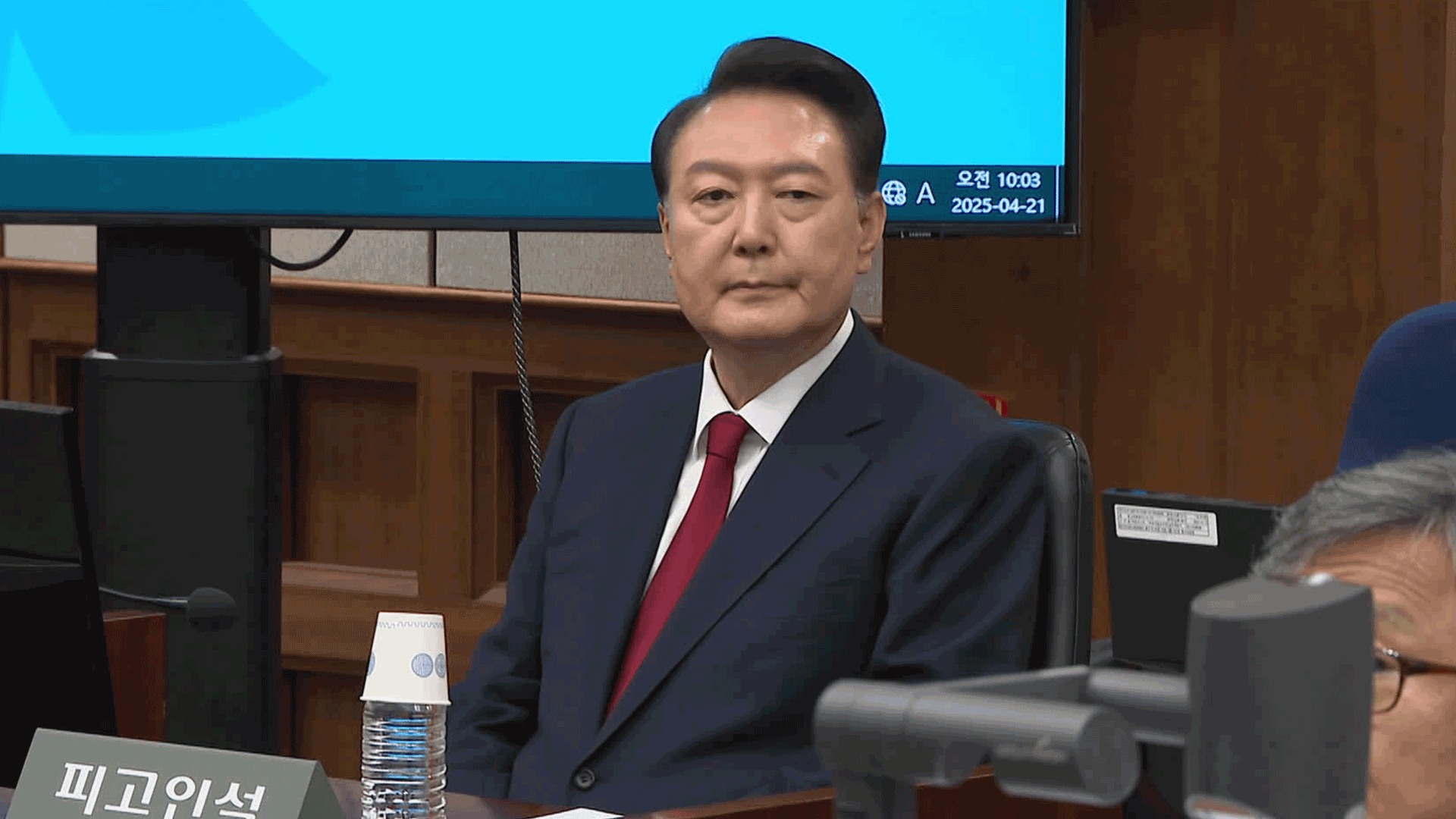Game Addiction
입력 2019.03.11 (15:18)
수정 2019.03.11 (15:33)
읽어주기 기능은 크롬기반의
브라우저에서만 사용하실 수 있습니다.
[Anchor Lead]
1.8% of Korean teenagers reportedly show signs of game addiction. Doctors have found that excessive game playing can change the brain structure to worsen addiction, which is scientific proof that game addiction is a disease requiring treatment.
[Pkg]
This office worker plays online games for two to three hours even on weekdays. On weekends, she once played these games 9 hours straight.
[Soundbite] (Online Game User in Her 20s) : "Time just flies by. I can't stop because I feel like one more win would get me up to a higher level and make me better at the game. I even forget about other appointments."
Researchers at the Boramae Medical Center in Seoul compared the brain image of a game addict to that of a normal person. The size of the hippocampus, the part that controls memory, was 14% larger than that of a normal person. Part of the parietal lobe associated with judgment or emotion control was also about 17% bigger. These areas of the brain grew, as addiction symptoms worsened. It appears the brain swelled up when excessive game-playing overloaded the areas regulating memory and emotion. Once the brain structure changes like this, it becomes harder to quit these games. It becomes harder to remember and to control emotions or impulses, plunging the game player deeper into addiction.
[Soundbite] Dr. Choi Jung-seok(Dept. of Psychiatry, Boramae Medical Center) : "The excessively large areas of the brain indicates that game addicts can't control their emotions and their memories or concentration are impaired."
It is hard to treat such patients with altered brain structures. It is best to find a specialist when symptoms of game addiction first appear. Teenagers are particularly prone to game addiction due to academic pressure or peer conflicts, so parents or guardians need to watch them more carefully.
1.8% of Korean teenagers reportedly show signs of game addiction. Doctors have found that excessive game playing can change the brain structure to worsen addiction, which is scientific proof that game addiction is a disease requiring treatment.
[Pkg]
This office worker plays online games for two to three hours even on weekdays. On weekends, she once played these games 9 hours straight.
[Soundbite] (Online Game User in Her 20s) : "Time just flies by. I can't stop because I feel like one more win would get me up to a higher level and make me better at the game. I even forget about other appointments."
Researchers at the Boramae Medical Center in Seoul compared the brain image of a game addict to that of a normal person. The size of the hippocampus, the part that controls memory, was 14% larger than that of a normal person. Part of the parietal lobe associated with judgment or emotion control was also about 17% bigger. These areas of the brain grew, as addiction symptoms worsened. It appears the brain swelled up when excessive game-playing overloaded the areas regulating memory and emotion. Once the brain structure changes like this, it becomes harder to quit these games. It becomes harder to remember and to control emotions or impulses, plunging the game player deeper into addiction.
[Soundbite] Dr. Choi Jung-seok(Dept. of Psychiatry, Boramae Medical Center) : "The excessively large areas of the brain indicates that game addicts can't control their emotions and their memories or concentration are impaired."
It is hard to treat such patients with altered brain structures. It is best to find a specialist when symptoms of game addiction first appear. Teenagers are particularly prone to game addiction due to academic pressure or peer conflicts, so parents or guardians need to watch them more carefully.
■ 제보하기
▷ 카카오톡 : 'KBS제보' 검색, 채널 추가
▷ 전화 : 02-781-1234, 4444
▷ 이메일 : kbs1234@kbs.co.kr
▷ 유튜브, 네이버, 카카오에서도 KBS뉴스를 구독해주세요!
- Game Addiction
-
- 입력 2019-03-11 15:25:12
- 수정2019-03-11 15:33:20

[Anchor Lead]
1.8% of Korean teenagers reportedly show signs of game addiction. Doctors have found that excessive game playing can change the brain structure to worsen addiction, which is scientific proof that game addiction is a disease requiring treatment.
[Pkg]
This office worker plays online games for two to three hours even on weekdays. On weekends, she once played these games 9 hours straight.
[Soundbite] (Online Game User in Her 20s) : "Time just flies by. I can't stop because I feel like one more win would get me up to a higher level and make me better at the game. I even forget about other appointments."
Researchers at the Boramae Medical Center in Seoul compared the brain image of a game addict to that of a normal person. The size of the hippocampus, the part that controls memory, was 14% larger than that of a normal person. Part of the parietal lobe associated with judgment or emotion control was also about 17% bigger. These areas of the brain grew, as addiction symptoms worsened. It appears the brain swelled up when excessive game-playing overloaded the areas regulating memory and emotion. Once the brain structure changes like this, it becomes harder to quit these games. It becomes harder to remember and to control emotions or impulses, plunging the game player deeper into addiction.
[Soundbite] Dr. Choi Jung-seok(Dept. of Psychiatry, Boramae Medical Center) : "The excessively large areas of the brain indicates that game addicts can't control their emotions and their memories or concentration are impaired."
It is hard to treat such patients with altered brain structures. It is best to find a specialist when symptoms of game addiction first appear. Teenagers are particularly prone to game addiction due to academic pressure or peer conflicts, so parents or guardians need to watch them more carefully.
1.8% of Korean teenagers reportedly show signs of game addiction. Doctors have found that excessive game playing can change the brain structure to worsen addiction, which is scientific proof that game addiction is a disease requiring treatment.
[Pkg]
This office worker plays online games for two to three hours even on weekdays. On weekends, she once played these games 9 hours straight.
[Soundbite] (Online Game User in Her 20s) : "Time just flies by. I can't stop because I feel like one more win would get me up to a higher level and make me better at the game. I even forget about other appointments."
Researchers at the Boramae Medical Center in Seoul compared the brain image of a game addict to that of a normal person. The size of the hippocampus, the part that controls memory, was 14% larger than that of a normal person. Part of the parietal lobe associated with judgment or emotion control was also about 17% bigger. These areas of the brain grew, as addiction symptoms worsened. It appears the brain swelled up when excessive game-playing overloaded the areas regulating memory and emotion. Once the brain structure changes like this, it becomes harder to quit these games. It becomes harder to remember and to control emotions or impulses, plunging the game player deeper into addiction.
[Soundbite] Dr. Choi Jung-seok(Dept. of Psychiatry, Boramae Medical Center) : "The excessively large areas of the brain indicates that game addicts can't control their emotions and their memories or concentration are impaired."
It is hard to treat such patients with altered brain structures. It is best to find a specialist when symptoms of game addiction first appear. Teenagers are particularly prone to game addiction due to academic pressure or peer conflicts, so parents or guardians need to watch them more carefully.
이 기사가 좋으셨다면
-
좋아요
0
-
응원해요
0
-
후속 원해요
0

















이 기사에 대한 의견을 남겨주세요.